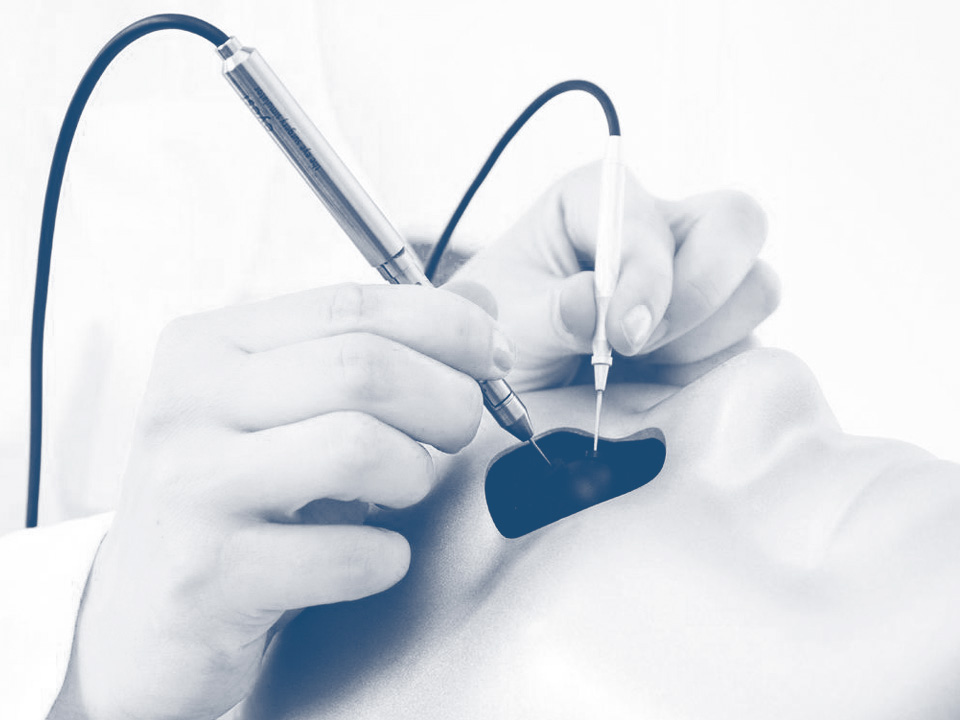We believe in innovation in learning
At the Barraquer Institute, we are committed to innovation applied to learning with tools such as 3D virtual surgery tools. You can use this cutting-edge technology to access an interactive training programme in diagnosis and surgical skills. You will be able to operate as much as you need, without any risk to real patients, until you achieve the desired results.
We train professionals who are highly qualified in ophthalmic subspecialisms.
3D simulator
The 3D simulator is a virtual reality tool for training house officers and ophthalmologists in intraocular surgery skills. The platform is equipped with a vitreoretinal surgery interface and offers an interactive three-dimensional environment with an exceptionally real appearance.
The simulation equipment reproduces a model patient head which can be operated on in an upright or lateral position. An operating stereo microscope shows the intraocular area with a realistic depth of field. In addition, the simulator enables us to control the focus and zoom and manage the instruments inserted in the model's eye at the same time.
Vitreoretinal training modules
The retina module helps to develop essential vitreoretinal surgery skills to improve competences in complex tasks such as posterior hyaloid detachment, peripheral vitrectomies, exfoliation of the internal limiting membrance (ILM), epiretinal membrane peeling and retinal detachment with oil or a gas tamponade. You will work in a realistic simulation environemnt, using a scleral notch and a vitrectomy machine, with variable lighting in the light tube and an endolaser.
The estimated time for completion of the full course is 30 hours.
Course structure
Our training programme is delivered in a structured way, guiding you step by step towards the desired performance standards. At the end of each session, the 3D simulator will provide you with an objective evaluation and a detailed skills assessment report.
All the content can be adapted to suit your level of skill, including surgical skills, procedures, performance indicators and complication management. For example, a second year house officer might have different learning needs to an experienced surgeon, who will probably be more interested in complicated cases and advanced surgical techniques.
